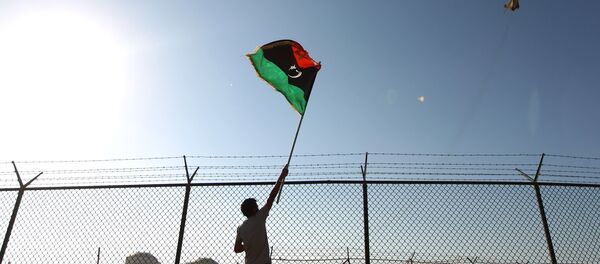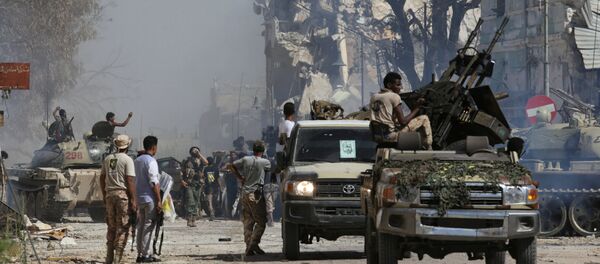Libyan National Army leaders traveled to Cairo to meet with the Egyptian Chief of Staff Mahmoud Hijazi, one of Egypt's top military officials. According to Egyptian army spokesman Tamer Al-Rifai, "the members of the [Libyan National Army] chose Egypt to be the starting point for the reorganization of the Libyan army, in the framework of Egyptian efforts to end the state of division and unify the Libyan army."
"The Libyan military delegation discussed with the Egyptian committee all stages of the crisis faced by the military institution in Libya throughout the past seven years," al-Rifai went on to say, referring to the civil war that began in 2011 when a NATO-backed coalition overthrew Libyan dictator Muammar Gaddafi, sending the country spiraling into chaos.
The Libyan National Army delegation stated that they were committed "to establish a modern, democratic and civil state based on the principles of peaceful transfer of power, consensus and acceptance of the other as well as the rejection of all forms of marginalization and exclusion of any of the Libyan parties."
Egypt and Libya would "form joint technical committees to discuss the mechanisms of unifying the military institution in Libya and to study all the matters that could support this," with additional meetings in Cairo planned to work out the kinks.
As the complex multi-factional warfare begins to die down, international actors have moved in to try to create a new Libyan government and reunify the country. The Libyan National Army controls most of the country and Daesh has lost what territory they managed to seize in 2014.
This is in addition to "working on the unity of the Libyan military institution and on the Libyan army's responsibility to maintain the security and sovereignty of the state, as well as to combat extremism, terrorism and reject foreign interference in Libyan affairs," according to the statement.
On numerous occasions, Egyptian President Abdel Fattah Al-Sisi has thrown his nation's weight behind the Libyan National Army led by Khalifa Haftar. As both are secular military leaders opposed to Islamist groups such as the Muslim Brotherhood, the alliance is a natural one.
The Libyan National Army and the Tobruk-based government it represents is opposed by two rival governments: the Western-backed Government of National Accord, and the Islamist General National Congress, both of which are based in the nation's capital of Tripoli.




